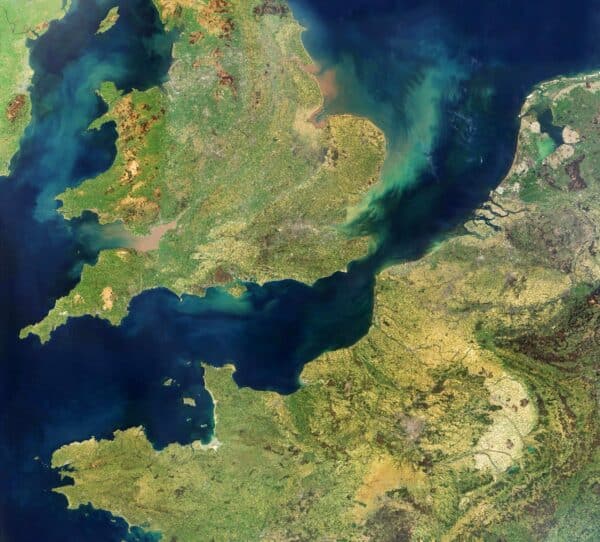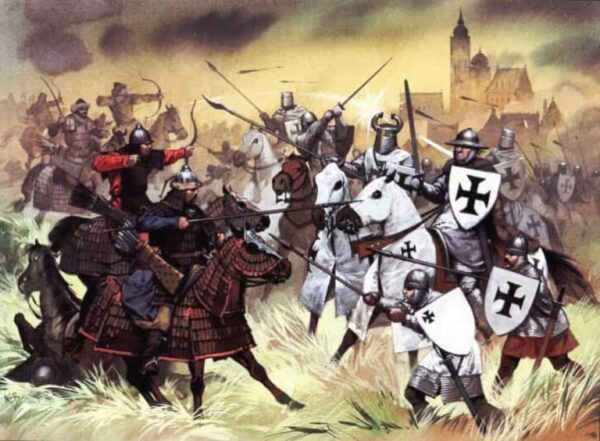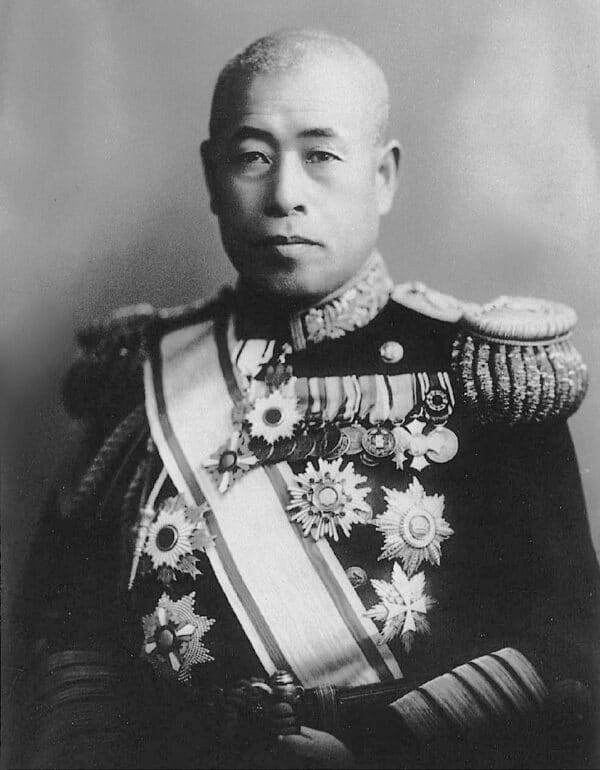Land. Farmers love it. Investors want it. An old saying goes: “They’re not making any more of it.” On a larger scale, societies, countries and nations are prisoners of it. It is the tyranny of geography and if you have “good” geography you thrive, while if you have “bad” geography you have endless problems. It’s sort of like the corner lot downtown that can’t support a restaurant; three establishments open and close one after the other because there’s limited parking, no room to expand, and out in the middle of nowhere; it’s in a bad geographic spot.
Looking at a map, no one would ever predict that scrawny England could ever be powerful. It’s too small. Look closer; that blue you see all around it is water – the North Atlantic, North Sea and English Channel. That water has meant that the chance of anyone successfully invading England is small, giving the English tribes a chance to form a country, and then a nation, which went on to create an empire that covered a quarter of the Earth’s surface. As an island, it has ports which led to commerce and a fishing industry which fed people. Only two powers ever conquered that island in over 2,000 years: Rome in 43; and the Normans in 1066. Napoleon couldn’t do it, nor could Adolf Hitler.
Halfway around the world is Bangladesh. As the eighth-most populous country in the world you might think it is a powerful nation. It has lush, fertile land and has never recorded an air temperature below 32°F; the people are industrious. But look closer at the map. To the north are the Himalayan Mountains; to the south is the Bay of Bengal. Most of Bangladesh has an elevation of less than 39 feet above sea level. Those geographic factors put Bangladesh in peril from monsoons, tropical cyclones, and floods from Himalayan melt water. In September 1998, Bangladesh saw the most severe flooding in modern history, with two-thirds of the country underwater. It is the tranny of geography.
Poor Poland. It has a seacoast, excellent farmland, natural resources, and smart, resilient people; they have a few tornadoes and cold weather in winter, but nothing worse than the US. Earthquakes in Poland are a rare phenomenon. Weathermen there sometimes describe “hurricane-force” winds, but let’s get real, Poland has never had a “Hurricane Brygida”. But perhaps more than any other country in Europe, Poland is a prisoner of the tyranny of geography.
Everybody and his brother have invaded them. Poland has also been the super-highway/autobahn/autostrada/Автомагистраль for fights between Germany and Russia trying to get at each other. The list of invaders is long and distinguished (at least for military history geeks): Baidar Khan (grandson of Genghis Khan), Kęstutis and his Lithuanians, Edigu and his Tatars, Ulrich von Jungingen and his Teutonic Knights – and that’s just to 1410. In recent times, Napoleon, Adolf Hitler and Josef Stalin rolled back and forth over the Polish plains. Poland couldn’t get out of the way of a war if it tried – because of its geography.
Which brings us home. The American colonies, when they revolted against England, had the gift of not good – but great – geography. The American Revolution was a “home game” for the colonists, while England had a 3,000-mile supply route back home. And for the next two centuries, the Atlantic Ocean proved such a formidable barrier that not even Nazi rocket scientists could develop aircraft and missiles that could strike American shores.
The same situation existed in the Pacific, so wide and formidable that not even vaunted Japanese strategist Admiral Isoroku Yamamoto dared invade us. Three salt-water bodies – Atlantic, Pacific, and Gulf of Mexico, enabled American ports to host fleets of commercial ships and fishing boats greater than Great Britain could ever dream of, which led to the 20th century being the American Century.
And yet in one fell swoop – what only a gigantic, earth-shattering asteroid could have accomplished – fools have neutered our country’s monumental geographic advantage by opening the southern border to a human invasion – and while there may be no enemy tanks rolling across as of yet, the number of known “gotaways” – illegal immigrants who are spotted crossing the border but who are never caught – are the equivalent of three Russian Army infantry divisions PER MONTH.
Some of those folks may be well-intentioned, albeit law-breakers; here’s what else is coming in: Fentanyl, opium, sex-traffickers, terrorists of all stripes, cocaine, drug cartels, Central American street-gangs, Covid, tuberculosis, all tsunamis of death – much funneled through Mexico by China. The result? Perhaps the greatest determinant of world power in history – location, location, location – has been trumped by the tyranny of idiocy, idiocy, idiocy.




